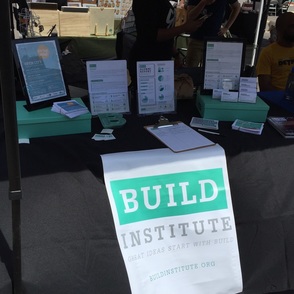
Microfinance is a key model that comes to mind when I think of the uprising of social entrepreneurship. Muhammad Yunus is the father of microfinance, transforming access to capital around the world for entrepreneurs and small business owners through Grameen Bank and countless other initiatives that support economic and social development. I have been strongly dedicated to the field of microfinance for almost 7 years, making loans to 290 entrepreneurs thus far through the microlending platform Kiva and volunteering at nonprofits like the Haitian-American Caucus and Accion East, Inc. Through witnessing and studying the effects of microfinance in domestic and international settings, I am inspired by the powerful and sustainable impact it makes possible.
I see social entrepreneurship as a way to reach social and economic development goals in a financially sustainable way. Social entrepreneurship capitalizes on human potential. It recognizes people’s capabilities and seeks to support endeavors that have been deterred by social, financial, and political institutions. Professor Yunus has said, “I’m encouraging young people to become social business entrepreneurs and contribute to the world, rather than just making money. Making money is no fun. Contributing to and changing the world is a lot more fun.” I believe the appeal of social entrepreneurship is growing among young people, as they are inspired by the ability to make an impact through less traditional business models.
Rather than offering charity, whether through money or time, social entrepreneurs introduce sustainability and initiative to solve pressing community issues. Yunus responds to the notion of charity as a way to “shrug off our responsibility. Charity allow us to go ahead with our own lives without worrying about the lives of the poor. Charity appeases our consciences.” A large aspect of the DukeEngage Detroit program continues to be innovation that is enduring and scalable.
Social entrepreneurship is an essential factor of the rebuilding of Detroit. The most central and relevant example for me is Build Institute, where I am fortunate to be interning for 8 weeks. Build offers an 8-week comprehensive business planning class for entrepreneurs. The course is affordable, with prices on a sliding scale based on annual income and family size. Every dollar of revenue is returned to support those classes and an abundance of other free networking events, connections to invaluable resources, and a community of over 700 alumni. Similar to microfinance, this business training model focuses on sustainability for entrepreneurs and overall community development. It is an empowering organization that offers the perfect jumpstart for business ideas to prosper. The five staff are exemplary social entrepreneurs, each contributing to Detroit’s revival in an innovative and impactful way.
I see social entrepreneurship as a way to reach social and economic development goals in a financially sustainable way. Social entrepreneurship capitalizes on human potential. It recognizes people’s capabilities and seeks to support endeavors that have been deterred by social, financial, and political institutions. Professor Yunus has said, “I’m encouraging young people to become social business entrepreneurs and contribute to the world, rather than just making money. Making money is no fun. Contributing to and changing the world is a lot more fun.” I believe the appeal of social entrepreneurship is growing among young people, as they are inspired by the ability to make an impact through less traditional business models.
Rather than offering charity, whether through money or time, social entrepreneurs introduce sustainability and initiative to solve pressing community issues. Yunus responds to the notion of charity as a way to “shrug off our responsibility. Charity allow us to go ahead with our own lives without worrying about the lives of the poor. Charity appeases our consciences.” A large aspect of the DukeEngage Detroit program continues to be innovation that is enduring and scalable.
Social entrepreneurship is an essential factor of the rebuilding of Detroit. The most central and relevant example for me is Build Institute, where I am fortunate to be interning for 8 weeks. Build offers an 8-week comprehensive business planning class for entrepreneurs. The course is affordable, with prices on a sliding scale based on annual income and family size. Every dollar of revenue is returned to support those classes and an abundance of other free networking events, connections to invaluable resources, and a community of over 700 alumni. Similar to microfinance, this business training model focuses on sustainability for entrepreneurs and overall community development. It is an empowering organization that offers the perfect jumpstart for business ideas to prosper. The five staff are exemplary social entrepreneurs, each contributing to Detroit’s revival in an innovative and impactful way.
 RSS Feed
RSS Feed
